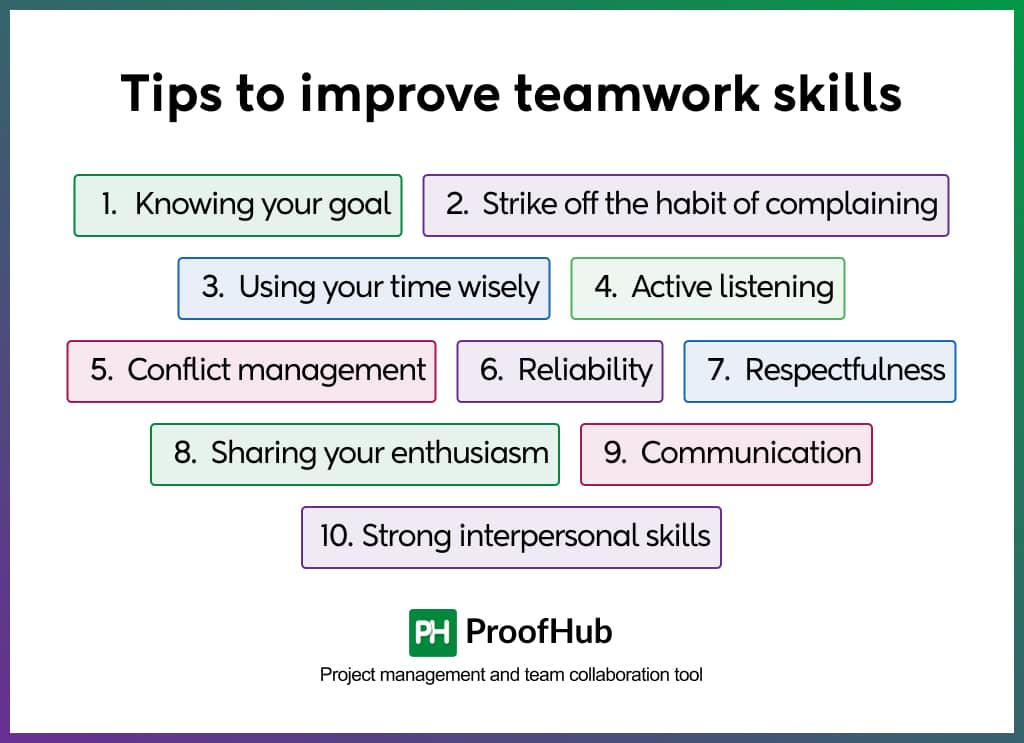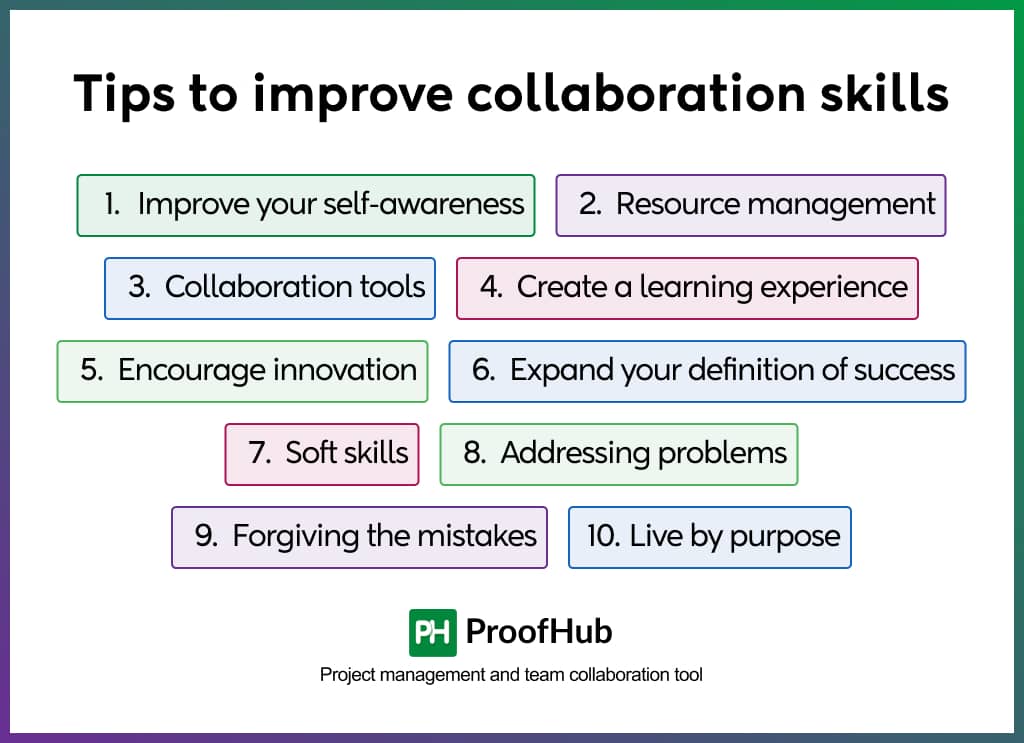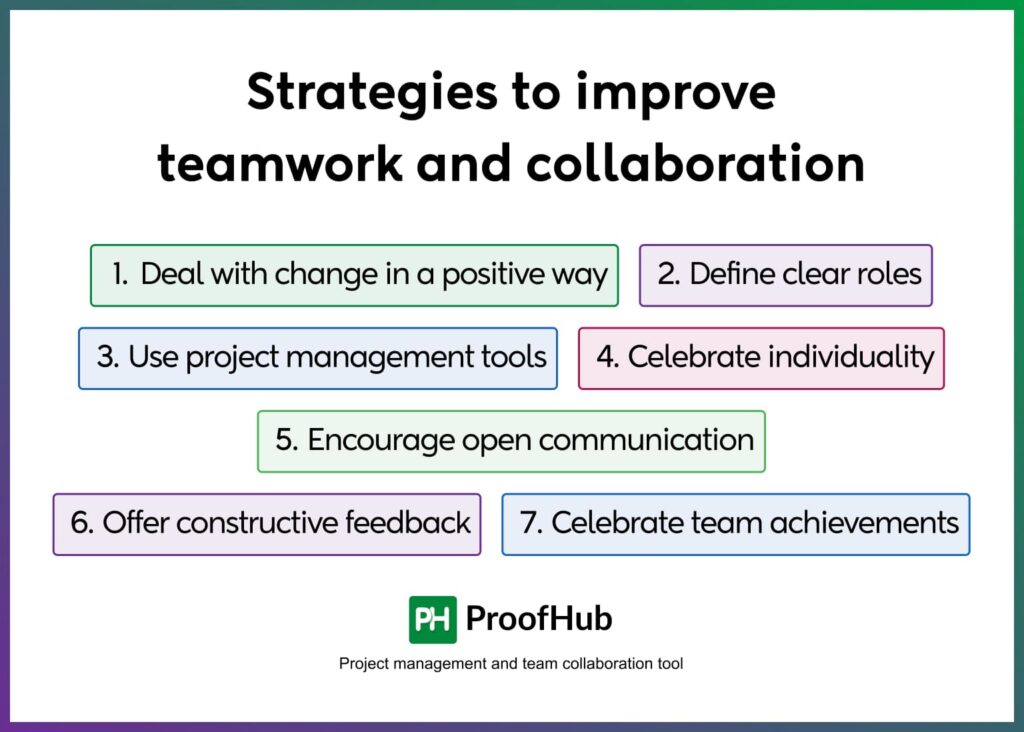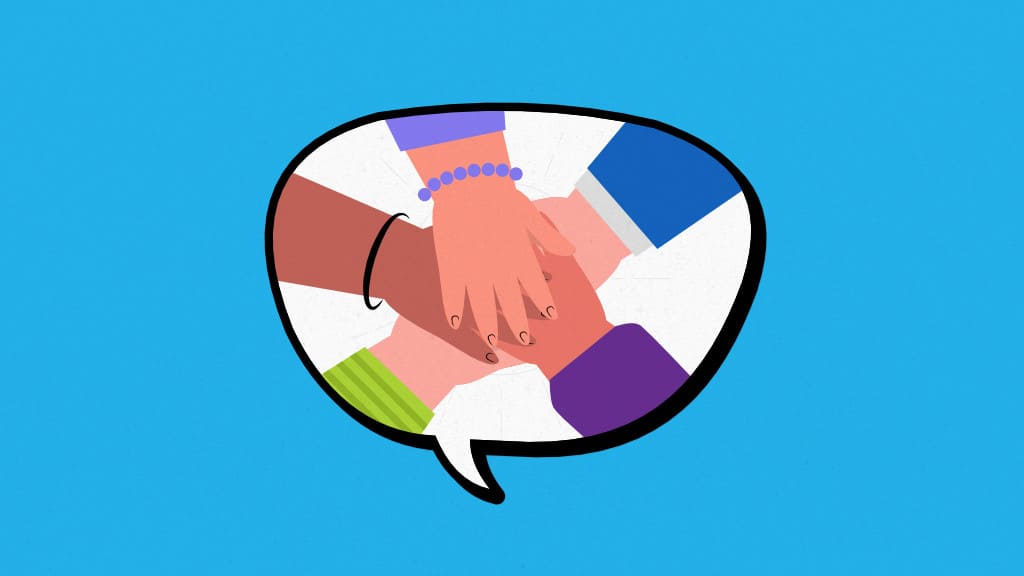Teamwork and collaboration are important skills for productivity, quality, morale, and employee retention. Whether you’re working on a small or a large project, having strong teamwork and collaboration skills can significantly impact the success of your project.
Developing teamwork and collaboration skills takes time and effort. Let’s kick-start your journey. In this article, you understand why collaboration and teamwork skills are important, how you can improve your skills, and strategies to improve teamwork and collaboration.
Let’s dive in.
Why teamwork and collaboration skills are important?
Teamwork and collaboration are important skills, here are a few reasons:
- Enhances problem-solving by leveraging diverse perspectives
- Increases productivity through shared responsibilities
- Fosters innovation with collaborative brainstorming
- Builds trust and accountability among team members
- Improves communication and reduces misunderstandings
- Strengthens team cohesion and morale
- Achieves goals more efficiently through coordinated efforts
What are the core elements of effective teamwork and collaboration?
There are 3 key components:
- Communication – Teams must communicate openly and honestly to ensure everyone is on the same page.
- Trust – Team members need to believe in each other’s abilities and intentions for smooth collaboration.
- Accountability – Each team member should take responsibility for their tasks. When accountability is a priority, team members can rely on one another to complete their work effectively.
How to improve teamwork and collaboration skills?
It all starts with truly leading your life but then extends to learning the skills to have better collaboration (about the importance of collaboration) and teamwork. You don’t have to go for formal training, just make it happen throughout the day.
Tips to improve teamwork skills

- Knowing your goal: Make sure you are not isolated from your project’s goal. Align your actions with the goal of your project and drive decision-making.
- Strike off the habit of complaining: Our brain tends to focus on the negativity. Complaining can take the whole ship down.
- Using your time wisely: Be careful about developing time management skills because how you use your time can impact the project of your team.
- Active listening: One important part of developing your teamwork skills is to be an active listener to make your team members feel valuable and cut off misunderstandings.
- Conflict management: Settle disputes through conflict management to mediate problems between team members.
- Reliability: It is important to make sure you stick to deadlines and complete any tasks you are assigned.
- Respectfulness: Simple actions in a team like using a team member’s name, making eye contact, and actively listening when a person speaks.
- Sharing your enthusiasm: This will keep the excitement to work together ongoing throughout.
- Communication: Share ideas and be open to feedback – the good and the critical.
- Strong interpersonal skills: It is important to speak one-on-one and interact throughout properly.
Tips to improve collaboration skills

- Improve your self-awareness: Be clear about what you want and need from others and how you truly are.
- Resource management: Successful collaboration requires organizing and sharing information.
- Collaboration tools: Clear and timely collaboration using collaborative tools to communicate anytime anywhere.
- Create a learning experience: Learning opportunities will make the team active and create a desire to grow.
- Encourage innovation: Get the right exposure to overcome your challenges and obstacles.
- Expand your definition of success: Share your expertise with others so the team achieves big group goals.
- Soft skills: Improve your soft skills including dealing with your mindset, character, and how you handle projects.
- Addressing problems: Find the obstacles to discuss problems cooperatively at all times.
- Forgiving the mistakes: Holding grudges will only mislead the team. Be willing to apologize and forgive at every step.
- Live by purpose: Always remember to keep the purpose of the project and project goals in front of mind.
Strategies to improve teamwork and collaboration
“Although teams that are large, virtual, diverse, and composed of highly educated specialists are increasingly crucial with challenging projects, those same four characteristics make it hard for teams to get anything done”— Lynda Gratton and Tamara J. Erickson, Harvard Business Review
Your teamwork and collaboration skills can help you improve organizational collaboration and communication. But how? Here are some effective ways to improve teamwork and collaboration in the workplace.

1. Deal with change in a positive way
Learn to embrace change in a positive way. We fear change at work because it is associated with fear of failure, fear of success, fear of criticism, and fear of the unknown. Pull off the negative feelings that come along with a change in an organization. However, with the right attitude, you could make your employees be able to collaborate more effectively.
2. Define clear roles and responsibilities
By clearly outlining each team member’s role and specific responsibilities, you eliminate guesswork and ensure everyone understands what they are accountable for. This fosters individual ownership and smoothens teamwork. Start by outlining goals for your team, make sure you also outline each member’s role and responsibilities to reach those goals.
3. Use project management and collaboration tools
Collaboration tools can make teamwork easier and more efficient. Tools like ProofHub, Slack, or Trello help streamline communication, organize tasks, and track progress in real-time. These platforms centralize conversations and project management, making it easier for teams to stay connected, even if they are working remotely.
With a collaboration tool, your team members can communicate and collaborate effectively without the need for face-to-face interactions. It is an easy way to organize projects and coordinate all the work the team does together.
4. Celebrate individuality
Forcing everyone to work similarly, on the same schedule, will simply exploit your teamwork. Teamwork will naturally improve when you give them the liberty to work in a way that makes them the most productive. Respect the individuality of each worker to boost engagement, teamwork, and employee retention.
5. Encourage open communication
Create an environment where team members feel safe and comfortable sharing their thoughts, ideas, and concerns. Open communication leads to transparency and ensures that everyone is informed and aligned. You can promote this by setting up clear communication channels and encouraging a culture of honesty.
6. Offer constructive feedback
Feedback is crucial for growth, but needs to be constructive and specific. Regular feedback helps team members improve, highlights areas for development and reinforces positive behaviors. When giving feedback, focus on solutions rather than just pointing out problems.
7. Celebrate team achievements
Recognition boosts morale and motivates the team to continue collaborating. Celebrate small wins and big successes, and ensure that individual members’ contributions are acknowledged. This helps build a positive team culture where people feel more appreciated and encouraged to collaborate.
What is the difference between teamwork and collaboration?
Teamwork and collaboration go hand in hand, but there is a difference between them. Teamwork refers to working together towards a common goal, while collaboration focuses on sharing ideas and knowledge to achieve success. Both are important for productivity and overall job satisfaction.
Conclusion
Good teamwork will naturally occur when your team has the right teamwork and collaboration skills. Teamwork is something we are trying to acquire everywhere. Because together, everyone achieves more. It is one way to a healthy workforce where employees are treated as individuals. A good team paves the way for success. Get the most out of each of your team members to grow into a big empire.

